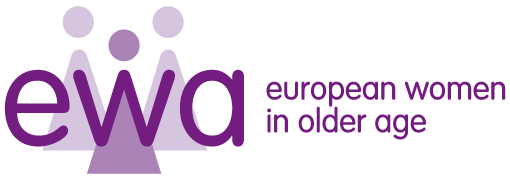Meta Information
Women's Portraits
Heidi Mandl
Interview with Heidi Mandl in the Vinzirast-Cortihaus, the house for homeless people
Lotte: I’ve already told you about the “EWA PROJECT” of the University of Ulm, where they are looking for women who want to contribute actively to society after their work- or family life, and want to help to shape the community. I am pleased that I have met you and that you have agreed to this interview. As I have learned from your biography you were involved in social projects your whole life. Did you get your social attitude from your parent home?
Heidi: “From my parent home not at all. It was a different time then, everybody had to watch out for themselves. But the feeling for social involvement was always inside me and grew throughout the years.”
Lotte: Which job did you do?
Heidi: “I studied pharmacy and worked in different pharmacies. By chance I came to the refugee relief of the Caritas and worked there full-time and felt my joy when I could help people in many areas of life from all over the world. Needless to say that I could not achieve everything I wanted to.”
Lotte: I am sure it is not always easy to deal with people who are in extreme situations.
Heidi: It is also a possibility to look into the lives of people and it is amazing how much you learn. For how long have you worked at the Caritas?
Heidi: “For four years, then they ran out of money. It got less and less and the laws were tightened.”
Lotte: You also lived in Bulgaria and worked for the Caritas there. Which insight do you get in the social hierarchy there?
Heidi: “You can not compare it to our system. There the social deficits are covered by the family. There is some welfare and some money for the unemployed. Due to the new conditions for work and the globalization I am afraid that the family ties will get lost. During socialism all the women had work and they can deal better with the changes.”
Lotte: A family is the smallest political structure but the self-reliance gets lost more and more.
Heidi: “Yes, and the state pulls back more and more. In our organization, the VINZIRAST, we work without public funds, only with private donations. Miss Corti has a good team of voluntary staff members which is also an advantage because we have more self-determination. We can also admit foreigners. Publicly supported houses can not do that because they get public funding.”
Lotte: Does the amount of foreigners get bigger?
Heidi: “Yes, they come with different ideas and expectations. But the possibilities on the job market are little. We give them shelter and food.”
Lotte: How long can the guests stay?
Heidi: “We restrain it to a short period of time, in former times it was four weeks. But the rush was too big and we want to give a chance to everybody.”
Lotte: I am sure it is difficult to take expectations and dreams away from them.
Heidi: “That is not our job and sometimes it fails already due to the language.”
Lotte: Is there a cooperation with other organizations?
Heidi: “Actually there is no cooperation. If we don’t have beds available we can call other institutions.”
Lotte: Is the demand higher and do you think that has to do with the political and social development in other countries?
Heidi: “Yes there are more and more people from Eastern Europe and we also have a rush from North Africa.”
Lotte: Can guests also stay without papers and documents?
Heidi: “They should be able to identify themselves. But we don’t ask if they can’t.”
Lotte: Is the amount of women smaller?
Heidi: “Yes, it is smaller maybe because women can adjust easier to new situations.”
Lotte: Are there problems with different nationalities or is there a sense of community?
Heidi: People have contact amongst themselves and also pass on information.
Lotte: I am sure there are rules so the short time living together works.
work without rules. The guests have to look out for cleanliness and tidiness in the dormitory and have to keep their beds tidy.
Lotte: How many volunteers are there?
Heidi: There are about sixty for evening and night shifts, forty extra for the kitchen.
Lotte: How did you get to know Ms. Corti?
Heidi: “She attracted my attention in the media reports. I also work at the hospice and thanks to a staff member who works there as well I ended up at the VINZIRAST.”
Lotte: In which areas do you work?
Heidi: “I do nightshifts, I am responsible for the groceries and I also like to cook. During the nightshift we often have to send people away because there is no bed available. Then there are negative reactions but the majority of the guests is helpful and we get a lot back.You can not expect gratitude, it is just nice to be around for the guests.”
Lotte: Is it sometimes difficult to find the balance between closeness and distance?
Heidi: “Yes, it is very difficult. I had to learn it. If staff members allow too much closeness they often fail. That should not happen and is an important learning process. There is a lot room for openness and humanity though.”
Lotte: What do your children think about your work?
Heidi: “They see it with attention and respect. Sometimes they are worried that I am doing too much.”
Lotte: I got some insight in this precious institution. I wish you lots of energy and joy during your work.
Thanks for the interview.
Heidi Mandl, born 1942 in Salzburg, Pharmacist and staff member in social institutions
at the Corti Haus and in the hospice, widowed, three daughters and one son.
Lieselotte Stiegler (Interview), Veronika Schnablegger (Video)



